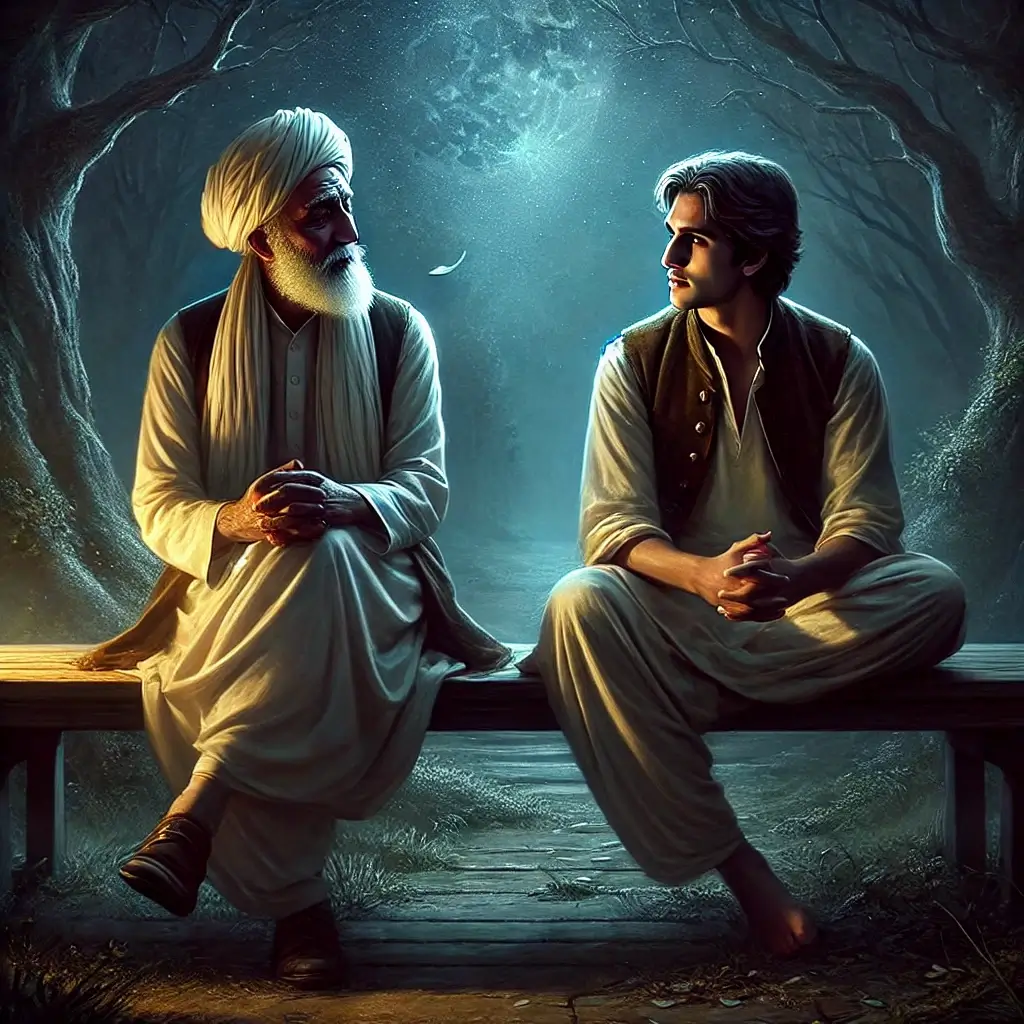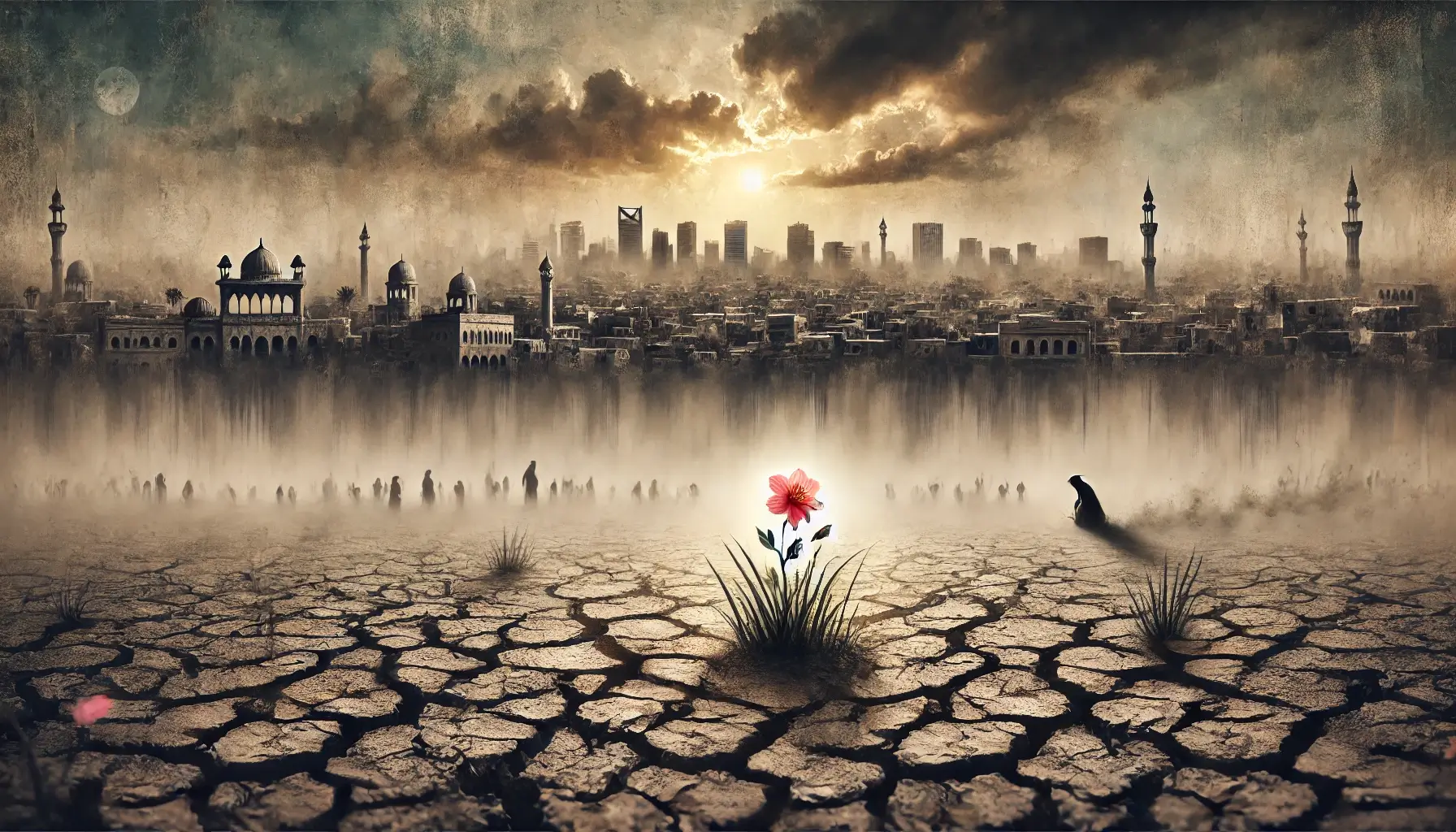It was a surreal Monday morning. The sun shone brightly, and the world moved at its usual pace. Workers of all kinds commuted to their jobs. Life carried on as it always had—for those content with their existence.
Amid this robust flow of life, a young boy walked with quiet determination, chasing a dream that had long burned within him. His name was Sikander, and his will was as unyielding as the great Alexander himself. Yet, as he made his way to work—a job that neither fulfilled nor defined him—his mind wrestled with thoughts of legacy. He wished to etch his name into the annals of history, to be remembered by generations yet to come.
But life, as it often does, had its own course set for him. His inquisitive mind and sensitive heart left him restless. The world around him neither welcomed his aspirations nor encouraged his vision, yet his imagination painted a reality where he could uplift others, make a difference—however small—in someone’s life. Still, the world in which he lived did not allow such defiance. It dictated its own rules, pressing him to follow the well-trodden paths of conformity, whispering that to stray was to invite ruin.
Sikander worked as a laborer in a small factory, despite having studied enough to earn respect. His education, though valuable, was of little consequence in a world where survival took precedence over ambition. Day after day, he toiled under the weight of monotony. Though skilled, he found no joy in his work; it was as if an invisible burden had been placed upon his shoulders, one he longed to cast off but could not.
Still, amidst the drudgery of long twelve-hour shifts, he rekindled his dreams each night, only to watch them wither away with the rising sun. One fateful day, unable to bear the weight of his stagnation, he left his job and wandered into a nearby garden. There, he sank onto a bench and whispered to himself:
“Glory is what I seek, yet it does not seek me. It favors only the flamboyant, the privileged, the chosen few.”
As he sat there, contemplating the world’s injustices, he found himself railing against the unseen forces that dictated the lives of so many—the system, the routines, the small, uninspired dreams that bound people to mere existence rather than true fulfillment.
His resolve was strong, but fate, ever fickle, had its own designs. Pressed by necessity, Sikander accepted a new position—this time as a hotel supervisor, overseeing workers beneath him. It was a leap forward, granted by his education, yet one that failed to acknowledge the brilliance he carried beyond academic scores. He was neither skilled in this new role nor passionate about it, but he worked tirelessly, determined to prove himself.
Then, just as he had begun to find his footing, the rug was pulled from beneath him. The hotel, struggling financially, let go of several employees—including Sikander. No reason was given. No justification was needed. He was cast back into uncertainty, his efforts seemingly reduced to nothing.
Days turned to weeks. Exhausted and demoralized, he found refuge in the company of the forsaken—those who, like him, believed society had rendered them powerless. Their hearts bore the same wounds, their spirits the same scars. And so, in the depths of despair, Sikander sought solace in intoxication. He drifted in a haze, a prisoner of his own restless mind and sorrowful heart, caught between the ruins of his past and the fading glow of his dreams.
The Mysterious Encounter
One night, lost in thought, Sikander wandered to a place that had once given him peace. The garden. But this time, he was not alone.
A man sat on the same bench. His clothes were fine, his demeanor calm, his presence exuding wisdom earned through time and experience. He was like the ocean after a storm—once wild, now at peace, yet still holding untold depths within.
As Sikander approached, he noticed something unsettling—the man’s gaze was fixed upon him, as if waiting, as if expecting him. There was no intimidation in his eyes, nor pity—only a quiet acknowledgment, as though he had long known the burden Sikander carried.
But Sikander had no time for such things.
His burdens were his own, too heavy to be shared. His ambitions had shaped him into someone who could not afford distractions, someone pressed against the weight of expectations and the anxiety that came with chasing a dream too vast for this world to nurture.

And so, as he steeled himself to walk past, the man spoke first.
“Hello, I am Ali.”
Sikander, hesitant, embittered by his misfortunes, remained silent.
Ali spoke again. “It is one thing to find oneself in trouble. It is another to refuse to seek a way out.”
Sikander finally answered, his voice laced with frustration. “I am not trapped by trouble. I am trapped by my own dreams. My life is what’s at stake.”
Ali nodded thoughtfully. “So, you have dreams? That is good.”
Sikander’s eyes flashed. “Yes!”
Ali’s lips curved into a knowing smile. “Then I must tell you something.”
Sikander, wary, replied, “Go ahead. But do not offer advice on things you know nothing about.”
Ali chuckled. “No, I will not. Instead, I want you to meet someone.”
Sikander frowned. “Meet someone? Who?”
Ali’s voice dropped to a whisper. “The Giant.”
Sikander narrowed his eyes. “The Giant? Who is that?“
Ali stood, dusting off his coat. “It is time for me to leave now. As for The Giant, that is something you must discover for yourself.”
Sikander scoffed. “What a joke. You’re playing with me.”
Ali turned back with a final, cryptic smile. “When you find the Giant, ask yourself—was I playing you?”
And with that, he was gone.
For days, Sikander wrestled with the enigma of The Giant, but no answers came. Frustrated, he let go of the thought and turned back to reality.
The Turning Point
The next morning, he stood at a crossroads—one path led to the same old gathering, the comfort of oblivion. The other led to possibility.
He chose possibility.
After days of searching, Sikander found a job as a newspaper reporter. From laborer to hotel supervisor to journalist, his path had been anything but linear. Yet, the one constant in all these roles was himself—his unwavering belief in his own potential, his faith in learning, and his commitment to hard work.
His work ethic was simple: hard work and courage. He found no shame in asking something he needed to learn, believing that growth should never stop until the grave.
Years passed, and Sikander’s name became known. From reporter to senior journalist to head editor, he built a legacy out of sheer will.
Becoming The Giant
One day, a meeting was called by the Society of Editors. A horrific incident had shaken the city, yet the information could only be told subtly. The challenge was to inform the public without causing mass panic—a task requiring both wisdom and skill.
The city’s top editors, gathered in urgent discussion, struggled to decide who could handle such a delicate responsibility. Who could tell the truth without making life harder for the people? Who understood the public’s fears and struggles while staying committed to righteous journalism?
For the first time in the meeting, there was no debate—just one name.
One of the senior editors stood and spoke.
“Through this meeting convened by the Society of Editors, we have resolved to inform the public about the atrocity committed. Our forum has unanimously decided to entrust this task to none other than the GIANT of our writing community and the Society of Editors—Mr. Sikander. A man who has always upheld the highest principles of journalism. A man who understands the people from the inside out, who has seen their inner horrors and the horrors of society at large. A man who has dedicated his life to truth, resilience, and responsibility. It is only right that he be the one to guide the public through this moment of crisis.”
For a moment, there was silence. And then, every head in the room nodded in agreement. They weren’t just choosing Sikander. They were recognizing what he had become.
And so, the world finally spoke the truth he had once struggled to see:
Sikander was The Giant.
That evening, as he sat alone in his office, Sikander stared at his reflection in the window, the city lights flickering beyond.
Years ago, he had searched for The Giant, thinking it was someone he had to find. Now, he understood. The Giant had never been out there.
A name surfaced in his mind.
Ali.
A small smile touched his lips. But then, just as quickly, it faded.
He finally understood what Ali had meant all those years ago.
The Giant was not a person.
It was the unshakable strength inside him—the belief that had carried him through every storm.
It was the courage to fail, to rise, to keep moving forward when the world told him to stop.





